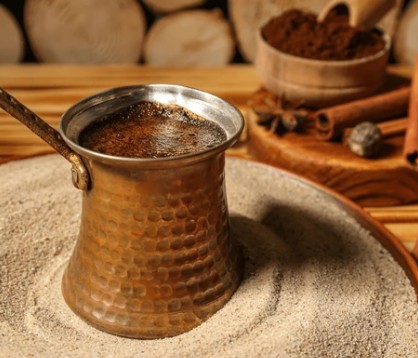Coffee Language: A Global Journey
- simondixon67
- Jul 14, 2025
- 2 min read
Updated: Dec 2, 2025
How do people say "coffee" around the world
Coffee is more than just a beverage; it’s a cultural phenomenon that connects people across the globe. The word "coffee" itself has an intriguing history that reflects its journey through different cultures and languages. Let’s dive into the origins of the term and explore the myriad ways to say "coffee" around the world!
Origins of the Word "Coffee"
The word "coffee" has its roots in the Arabic word "qahwa," which originally referred to wine or any intoxicating beverage. The term evolved over time as coffee spread from the Arab world to Europe. By the 16th century, coffee had made its way to Turkey, where it was known as "kahve."
The Italian word "caffè" emerged from this, which eventually led to the English "coffee." This journey reflects the rich history and cultural significance of coffee in societies around the world.
Ways to Say Coffee by Continent
Below is a list of how to say coffee in various languages, grouped by continent.
Africa
Amharic: ቡና (Buna)
Swahili: Kahawa
Hausa: Kofi
Asia
Arabic: قهوة (Qahwa)
Chinese (Mandarin): 咖啡 (Kāfēi)
India: Hindi: कॉफी (pronounced kah-fee)
India: other local languages also use "Kafi"
Japanese: コーヒー (Kōhī)
Korean: 커피 (Keopi)
Thai: กาแฟ (Kāfaē)
Europe
French: Café
German: Kaffee
Italian: Caffè
Spanish: Café
Portuguese: Café
Dutch: Koffie
North America
English: Coffee
Spanish (Mexico): Café
South America
Spanish (Argentina): Café
Portuguese (Brazil): Café
Oceania
English (Australia/New Zealand): Coffee
Maori: Kōhī

Have we missed coffee in your national language or local dialect - please share yours in the comments/a message and we can add above.
Conclusion
From "Buna" in Ethiopia to "Kāfēi" in China, the word for coffee varies widely across cultures, but the love for this delightful drink is universal. Whether you enjoy a rich espresso in Italy or a sweet café au lait in France, coffee continues to be a bridge between cultures, bringing people together one cup at a time.
-------------------------------------
Kenya Coffee Map
Check out the findmecoffee254 coffee map - find over 200 coffee shops across Kenya, also coffee roasters and equipment providers too. We are adding more all the time. Wherever you are in Kenya this map can help you find great coffee.
FindMeCoffee254 Coffee Map
If you find one we don't have share it. If you are somewhere and cant find coffee, even with this map, let us know and we will get searching for you. info@findmecoffee254.com
----------------------------------------










